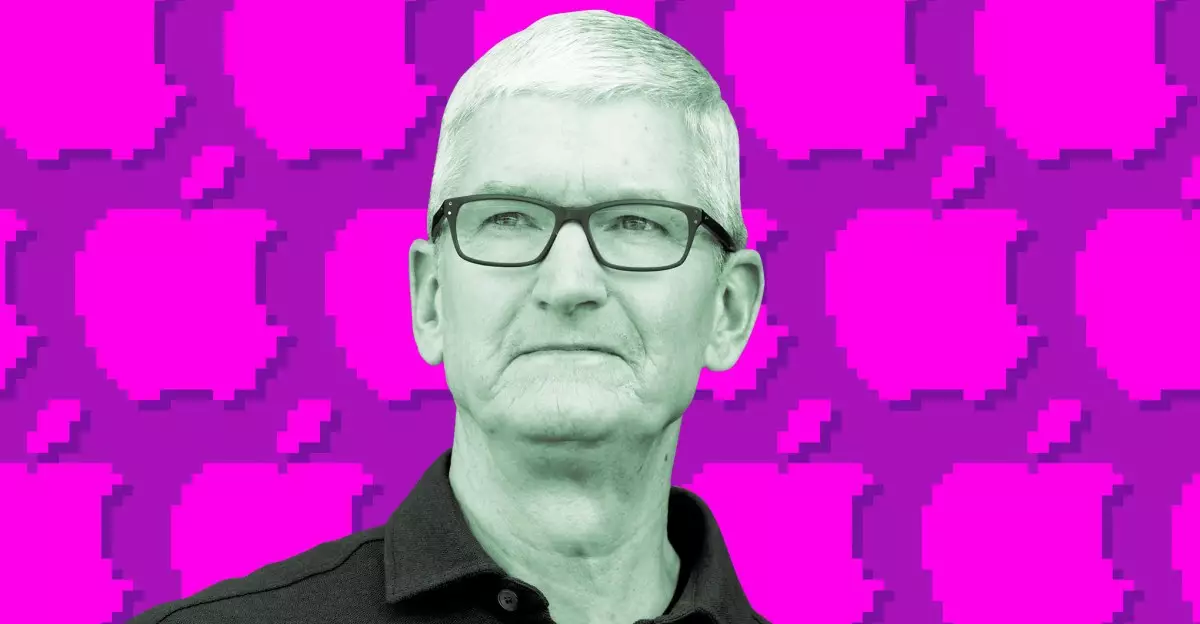In a rare and revealing gathering, Apple’s top executives, led by CEO Tim Cook, took center stage to articulate an ambitious future centered on artificial intelligence. The tone was optimistic, bordering on fervor, with Cook framing AI as a seismic shift comparable to the advent of the internet and smartphones. His declaration was clear: Apple must and will lead in this new frontier. Such proclamations are not merely statements of intent but signals of a fundamental strategic pivot. However, history suggests that Apple’s approach to pioneering technology often exhibits a cautious, deliberate pace—sometimes to its detriment. Considering this, the company’s current stance on AI warrants scrutiny. Are they truly poised to capitalize on this revolution, or are they merely paying lip service while others race ahead?
Cook’s emphasis on AI being “as big or bigger” than the internet or cloud computing reflects a narrative that positions this technology as the defining challenge of our era. Yet, the narrative masks a concern about Apple’s recent stumbles, notably in AI feature launches like Siri. The delayed upgrade of Siri, which was plagued by architectural challenges, underscores a company grappling with its own internal limitations. For a company that prides itself on seamless user experience, these setbacks reveal an overconfidence in its traditional approach—resisting the rapid evolution driven by large language models (LLMs) and modern AI techniques.
Internal Struggles and Strategic Re-evaluations
Apple’s internal deliberations reveal a struggle to keep pace with the fast-moving world of AI development. As revealed by Federighi, Apple initially planned a hybrid architecture for Siri—an approach that was ultimately deemed insufficient in meeting Apple’s high standards. The shift to a new, unified architecture indicates that the company is reassessing its technical assumptions. While this reorientation is necessary, it also points to a broader narrative of late realization, a characteristic of a company often slow to adapt but eager to catch up.
Additionally, Apple’s talent pipeline is not immune to the wider industry’s competitive allure. The company has lost some AI talent to Meta’s aggressive hiring spree, especially those involved in developing “superintelligence.” Such losses could impact Apple’s long-term innovation capabilities, raising questions about whether its lofty AI ambitions are hindered by internal bottlenecks or by a strategic misalignment with the pace set by rivals like Google, Meta, and OpenAI.
Is Apple’s Caution a Strength or a Weakness?
Apple’s cautious posture in AI development could be perceived as a strength—prioritizing quality over quantity, resisting hype, and avoiding premature feature rollouts. However, in the rapidly evolving AI landscape, this restraint may become a liability. Companies like Google and Meta are not just iterating but innovating at breakneck speeds, deploying large-scale language models and integrating AI deeply into their ecosystems. Apple’s reluctance or delay in adopting these techniques risks relegating it to a follower rather than a leader.
Furthermore, the company’s narrative of waiting for the ‘right’ moment to unleash AI innovations appears increasingly at odds with industry realities. The AI era demands agility, open collaboration, and a willingness to accept risk—traits that Apple must cultivate if it truly intends to own this space. Otherwise, it risks branding itself as a cautious latecomer, unable to capitalize on its brand power and loyal user base.
Overall, Apple’s strategic stance on AI remains a fascinating mix of visionary rhetoric and cautious execution. The challenge lies in translating ambitious statements into tangible innovations that can redefine what consumers expect from their devices and digital experiences. The question is whether Apple’s leadership can reconcile its tradition of perfection with the urgency that AI innovation necessitates.

